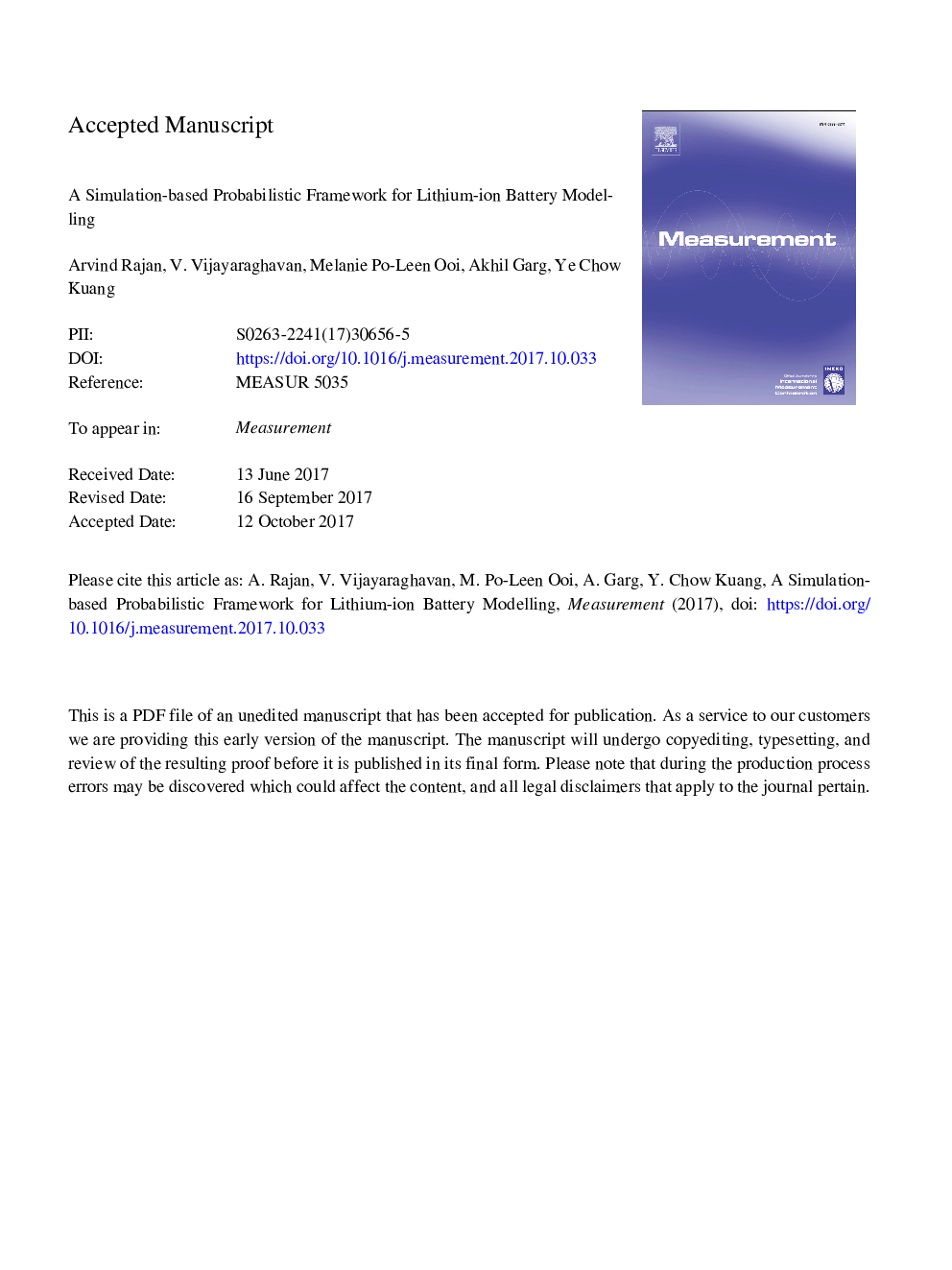| Article ID | Journal | Published Year | Pages | File Type |
|---|---|---|---|---|
| 7121975 | Measurement | 2018 | 25 Pages |
Abstract
State-of-the-art researches on the modelling of lithium-ion batteries for electric vehicle have been conducted based on the physics and empirical-based models to estimate their states. However, less attention has been paid to evaluating the mechanical strength of the batteries when the battery pack is subjected to sudden external impact or crash. The present work, therefore, proposes a simulation-based probabilistic framework that combines artificial neural network and a moment-based uncertainty evaluation technique utilising the finite element model of a lithium-ion battery to evaluate its mechanical strength. The study was based on the following inputs: displacement, temperature and strain rate of the battery, and their uncertainties when the battery is subjected to sudden impact. The artificial neural network outperforms other well-known modelling methods, such as the radial basis function neural network and polynomial regression, for the global mechanical strength modelling, and the probability distribution obtained from the proposed uncertainty evaluation procedure is shown to be accurate. Further analysis employing the framework reveals that the mean mechanical strength of the battery decreases with increasing temperature, but increases with increasing displacement and strain rate. It was also found that the displacement and temperature have similarly high influence on the mechanical strength of the battery compared to the strain rate. The proposed framework and presented findings can help battery manufacturers improve the road safety of electric vehicles.
Related Topics
Physical Sciences and Engineering
Engineering
Control and Systems Engineering
Authors
Arvind Rajan, V. Vijayaraghavan, Melanie Po-Leen Ooi, Akhil Garg, Ye Chow Kuang,
